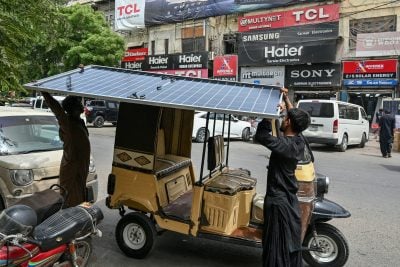GM to the rescue?
In the fight to increase agricultural productivity and adapt it to climate change, the use of biotechnology in crop production is another solution put forward. A Chatham House research paper entitled On Trial: Agricultural Biotechnology in Africa, published in July this year, states that “there are important opportunities to enhance yields and increase resilience through the adoption of improved crop varieties. In some cases, biotechnology, and in particular genetic modification (GM), offers advantages over conventional plant-breeding approaches.”
Despite a significant scientific and agribusiness backing, however, GM food has faced vehement opposition from African farmers and governments. Zambia’s former President, Levy Mwanawasa, known for his inclination towards direct rhetoric over diplomatic patter, called GM foods “poison”, blocking GM food aid to his people. He only allowed GM foods into the country following popular outcry and a study of GM foods safety by his own scientists sent to visit various European and American cities.
Related to the GM issue is also the double-edged sword of the perceived impact the adoption of GM crops on Africa economically as well as for the safety of its consumer population. More than 50% of the continent’s agriculture is exported to the European Union (EU), where GM foods must be labelled as such due the consumer opposition to it.
On the one hand, farmers fear they will lose the European market with the introduction of GM foods over safety perceptions by European consumers. On the other hand, GM crops have the potential to vastly increase African crop yields.
South Africa was the only African country that accepted GM crop offers by US biotech corporations during a 1998 FAO meeting. All other African countries outrightly rejected them, saying “we strongly object that the image of the poor and hungry from countries is being used by giant multinational corporations to push a technology that is neither safe, environmentally friendly, nor economically beneficial to us”.
The appeal of climate-smart agriculture is boosted in part by such objections to GM foods, a difficulty that undermines a balanced debate and creates a blind spot about enquiry into what climate-smart agriculture entails.
Climate-smart agriculture, while garnering strong support from the African governments themselves and the US has also drawn some disapproval from authoritative and influential quarters. Paul Driessen, author of Eco-Imperialism: Green Power – Black Death, and senior policy advisor for the Committee For A Constructive Tomorrow (CFACT) wrote an article entitled Climate-Smart Policies for Africa are Stupid. Similarly, the Third World Network (TWN), in a briefing about GACSA, questioned the authenticity of the system, calling it climate-dumb.
Despite this however, climate-smart agriculture is attracting support, including from the smallholder African farmers appreciative of an initiative promoting indigenous ways and knowledge.
Want to continue reading? Subscribe today.
You've read all your free articles for this month! Subscribe now to enjoy full access to our content.
Digital Monthly
£8.00 / month
Receive full unlimited access to our articles, opinions, podcasts and more.
Digital Yearly
£70.00 / year
Our best value offer - save £26 and gain access to all of our digital content for an entire year!
 Sign in with Google
Sign in with Google 


